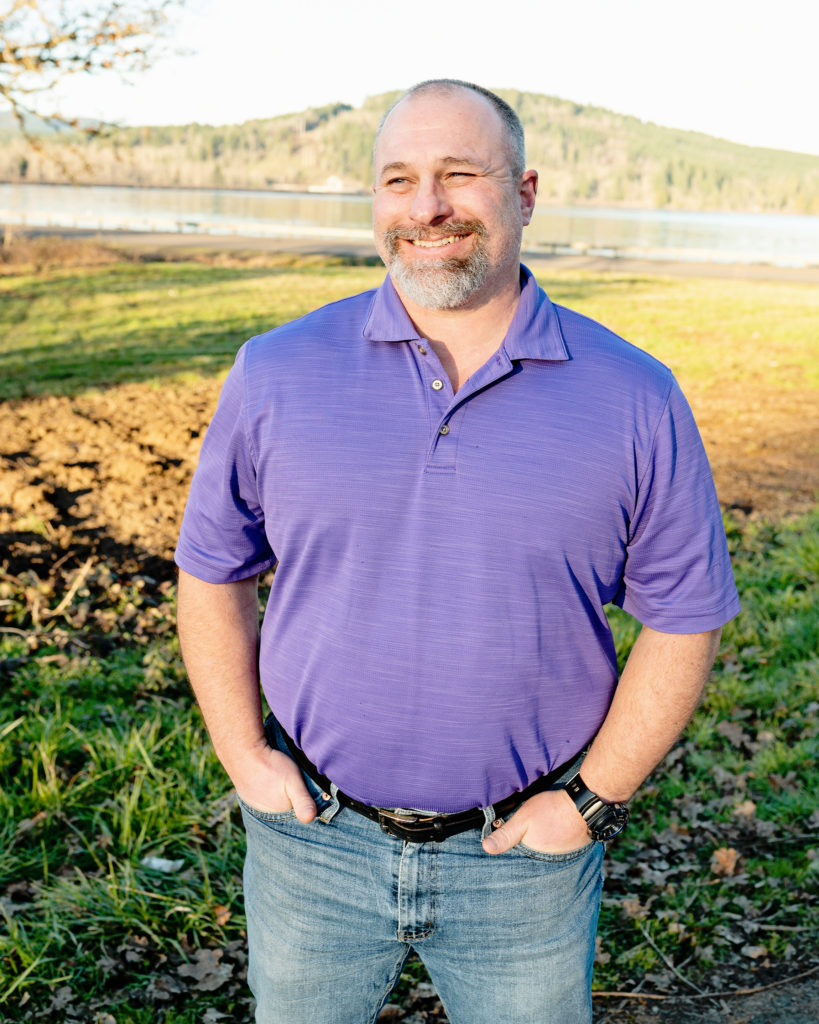
Two candidates are vying to represent a large swath of rural Lane County in the state Legislature.
The race for House District 12 is between the Democratic Party and Independent Party nominee Michelle Emmons of Oakridge and Republican Party nominee Charlie Conrad of Dexter.
Emmons says if elected she would be the first Oakridge resident to serve in the Legislature and that she’s running to improve rural access to education, improve resilience during and after climate change-related disasters and make climate policies more inclusive for rural communities.
Conrad, a former Springfield police officer who was involved in one of the city’s more costly settlements, says he’s not a right-wing Republican and that he wants to advocate for rural residents of his district and throughout the state. Although he says he doesn’t agree with some of the Legislature’s police reforms, he says he’s on board with supporting CAHOOTS-like programs in rural Oregon.
The area is currently represented by state Rep. Marty Wilde, a Democrat, who alleges that his district was gerrymandered in the favor of Republicans after he spoke out about the Legislature’s redrawing of legislative districts in 2021.
HD 12 runs along Highway 58, including Dexter, Lowell and Oakridge all the way to Waldo Lake. It also has Cottage Grove, Creswell, Marcola and Junction City and a tiny bit of south Eugene. Wilde chose not to run for the redrawing of his HD 11, which before redistricting included the majority of south Eugene, spilled south to Cottage Grove, east to Oakridge and north near Lebanon.
Emmons, the Democratic candidate, is the upper watershed program manager with the river advocacy nonprofit Willamette Riverkeeper and a small business owner in Oakridge.
Among the concerns she hears from constituents is access to child care. “It’s a lot more difficult to get children signed up into child care into their own communities,” she says. “You’ll have folks who are commuting outside of our communities who also have to transport children across the district or out of the district in order to get child care services.”
Emmons says the state Legislature should also consider investing in rural access to broadband internet and improving cell phone tower infrastructure. That would not only benefit schools for improving access to virtual education but also benefit businesses and address emergency communications during climate-caused natural disasters.
As climate change continues to increase the global temperature, increasing the frequency and intensity of wildfires in rural areas of Oregon, Emmons says the state should look at ways to protect infrastructure. She says burying power transmission lines is too expensive, but as the state upgrades its roadways, it should consider putting the electrical grid underground.
“It’s definitely a climate resiliency tool,” Emmons says. “Because when the electrical grid is shut down during high winds or high heat days — not necessarily when there’s a fire in play — it’s a way to prevent fires from happening. It allows our rural communities that are affected by the shutdown, to continue to operate.”
When the state discusses decreasing its carbon footprint, Emmons says that she wants to advocate for making it inclusive for farmers and rural communities. In addition to charging stations in rural areas, she says that the state could incentivize more-sustainable farming equipment. “If we’re going forward with an EV future, we need to ensure that we’re bringing along folks in industries that are supporting our urban communities, such as growing our food, creating jobs or providing commodities like timber,” she says.
Emmons has raised $14,000. Her largest contributions have been $3,500 from the Democratic Party House Builders PAC, $2,500 from Stand for Children and $2,000 from Little VIP daycare in Eugene. The average contribution is $263.

Before working as an operations supervisor at Lane Events Center, Conrad was a Springfield police officer and detective for 14 years.
“I’m not an extremist. I am a Republican candidate. I’m not MAGA, and I’m not Q,” Conrad says. “I’m here to help people, and the things that really impact people, regardless of their party affiliation.”
If elected in November, Conrad says he wants to represent rural Oregon, which includes advocating for agriculture businesses and recent legislation that is affecting profit margins. He says the Legislature needs to look at the Corporate Activity Tax, which is applied to corporations whose annual revenue exceeds $1 million and funds the state’s schools. And he wants to look into how the overtime pay for farmworkers, which was passed during the 2022 legislative session, affects the ag industry.
“If the ag sector is a huge part of our economy locally in Lane County, what can we do to ensure that they can continue to employ people with a living wage but balance that with their need for profit and be able to run a business and run it sustainably, ” he says.
During Conrad’s tenure as a Springfield police officer, he was a defendant in a lawsuit alleging police brutality. In 2013, Raymond Toll was homeless and living out of his car. A local business had called the police to say that Toll was causing a disturbance. Conrad and another police officer arrived and, though knowing Toll was deaf, didn’t request an ASL interpreter, according to the filing.
Because Toll is deaf, the lawsuit said, he needed to communicate through body language. While handcuffed and on the ground, Toll kept turning his head around to try and communicate with the police officers, and Conrad allegedly forced Toll’s head to the asphalt, a motion that caused Toll injury to his bones and ligaments to the right leg.
In 2015, the city of Springfield settled Toll’s lawsuit for $450,000. Then-city spokesperson Niel Laudati told The Register-Guard that the police officers could’ve done a better job communicating.
Conrad tells Eugene Weekly that he left SPD in 2014, but that he was “pleased, but not surprised” that the city and police department found his actions were objectively reasonable. “I also respected their suggestion that it was best to settle the lawsuit,” he adds.
Conrad says that he doesn’t agree with some of the police reform measures that the Oregon Legislature passed during the 2021 session. But he does say the state needs more CAHOOTS-like response teams.
“Let police officers focus on the crimes, the criminals, the things that need to happen to put people in jail, so they don’t create more victims,” he says. “Take some of that social work, some of the psychiatric and counseling work, and give it to people that have that aptitude, give it to the people that are good at that, and keep them trained and funded and give them the resources.”
Conrad has raised about $61,000. His largest contributions have been $5,000 from political action committees, such as OrLoggers, Republican pro-business Jobs PAC and commercial American General Contractors Committee for Action. The average contribution is $810.
This article has been updated.